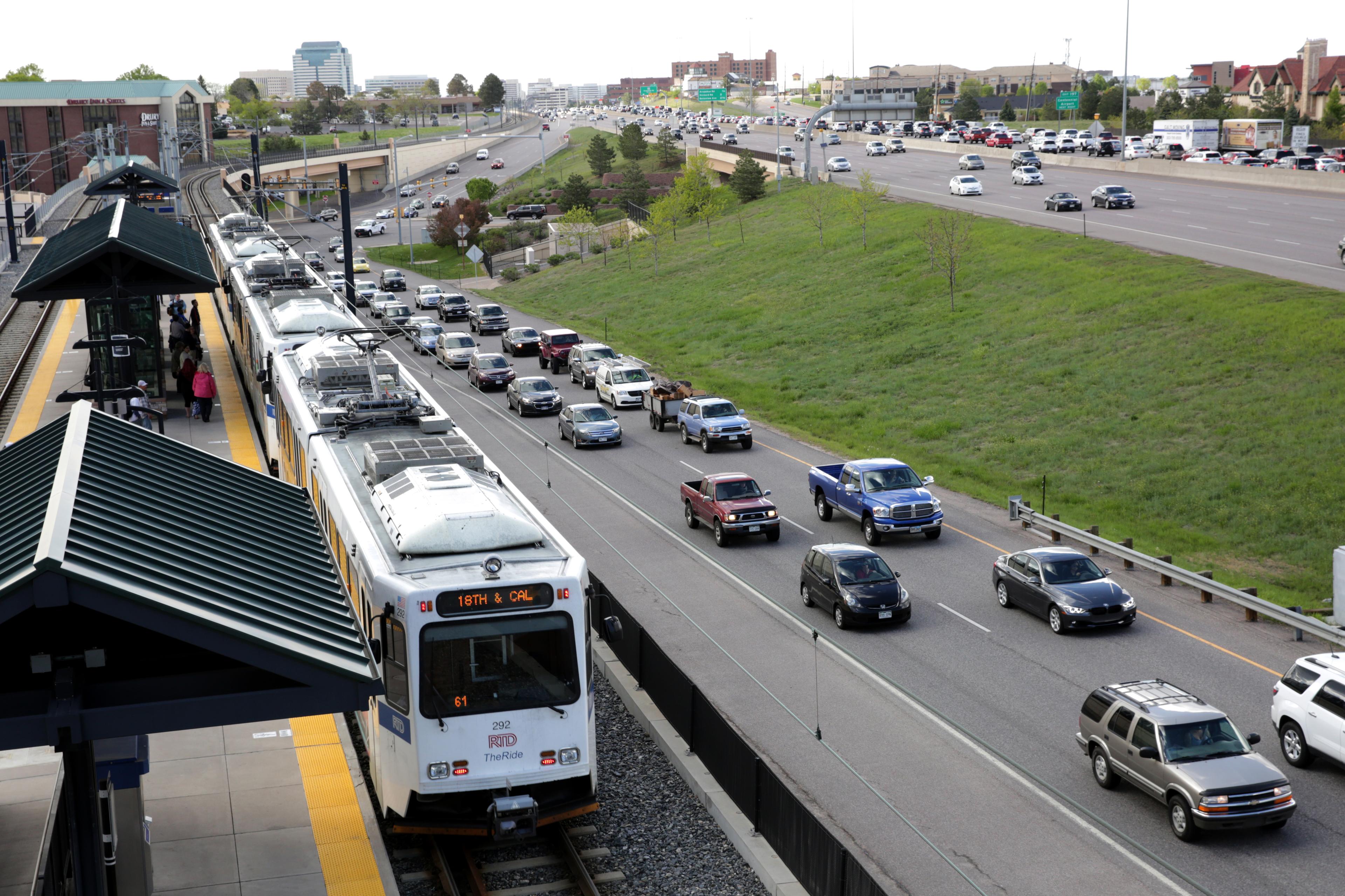
Many Coloradans could board a bus or train for free this summer under a proposed bill to combat local air pollution.
The legislation comes after smog and wildfire smoke have blanketed parts of the state in the last few years, threatening to undo decades of slow-but-steady air quality improvements. As a result, the U.S. Environmental Protection Agency is now expected to downgrade the Denver area from a "serious" to "severe" violator of federal ozone standards, triggering more aggressive enforcement against polluters.
State Sen. Faith Winter, a Westminster Democrat and a main sponsor of the legislation, said air pollution also requires immediate action from state lawmakers.
"One of the ways that need to address that pollution is to increase transit ridership, which is a challenge coming out of the pandemic," Winter said.
If the proposed legislation passes, the Colorado Energy Office would oversee a new grant program to help eliminate fares during the summer ozone season, which lasts from June 1 through Aug. 31. It provides enough funding to award $11 million per year to metro Denver's Regional Transportation District and $3 million per year to all other local transit associations. The grants would be available over the next two summers.
RTD would use the grant funding to provide free transit only during August, not the entire summer ozone season, according to Marta Sipeki, RTD’s interim assistant general manager of communications.
During negations on the bill, Sipeki said RTD leaders pushed for a "more cautious, incremental approach” to free transit because the agency has struggled to hire enough drivers and handle a surge in crime, drug use and violence at some of its facilities. State lawmakers and other transit advocates proposed a single month of free transit as a compromise.
"RTD welcomes the opportunity to partner with the state on implementing an incremental program that has the potential to expand in subsequent years if grant funding is available," Sipeki said.
One particular concern is staff safety. During a board meeting last week, RTD CEO Debra Johnson said the success of the fare-free ozone transit program depends on local communities providing enough security and social services to ensure "a safe working environment is in place."
Sen. Winter said other communities could offer more extensive programs. Under the current proposal, transit agencies must promise to eliminate fares for at least 30 days to receive funding but could win grants to cover free rides for the entirety of the ozone season.
The proposed legislation is in keeping with a request from Gov. Jared Polis, who asked for $28 million to eliminate transit fares as a part of a broader $424 million air quality package in his latest budget request. In addition, the bill calls for $30 million for a transit pilot program within the Colorado Department of Transportation, which Winter said would be distributed over three years to expand bus rapid transit along the Interstate 25 and I-70 corridors.
The legislation will get its first hearing before the state Senate's Transportation and Energy Committee on Tuesday.








